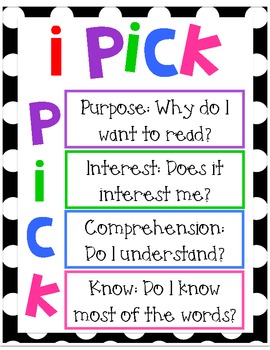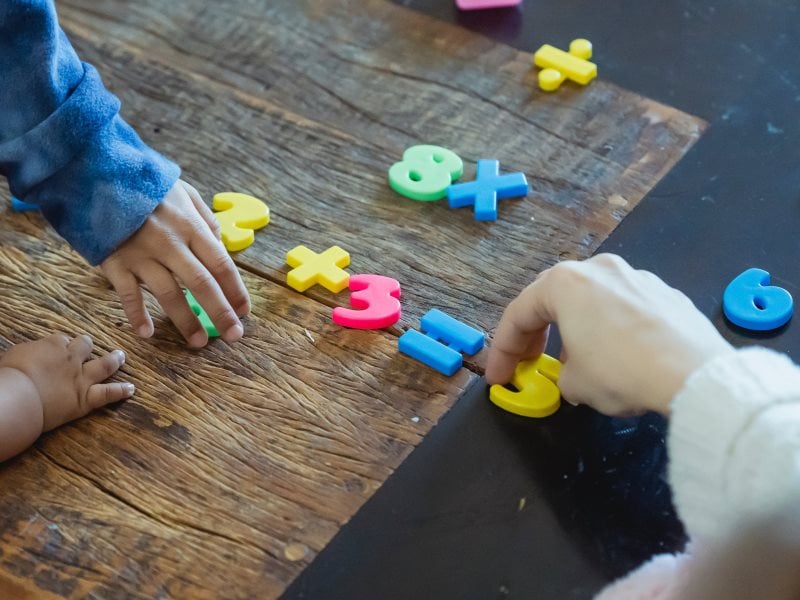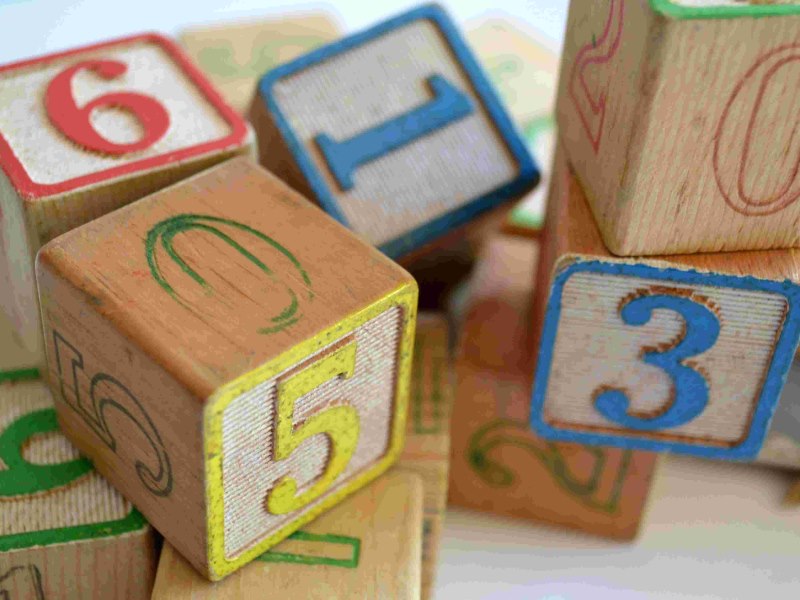One of the foundational rules of developing a love for reading (whether it be within yourself or cultivating the same in your child) is for the reader to be able to choose books they find interesting. Whether it be A Tale of Two Cities or even Captain Underpants and the Perilous Plot of Professor Poopypants, having a genuine interest in the subject matter is essential for a reader to enjoy the book they're reading.
However, as modern generations gravitate towards unfamiliar names and flashy covers, many can't help but wonder: is the freedom to read only what we immediately find interesting preventing us from learning as much as we could?
The 'I PICK' Generation
In classrooms around the world, English teachers are increasingly employing the 'I PICK' strategy: "An important  part of becoming an engaged, voracious reader is the ability to choose books that are a good fit." By focusing on ensuring that each child is interested in the books they read (in addition to comprehension), these teachers have cultivated a generation of readers far more capable of and interested in the act of reading, in and of itself.
part of becoming an engaged, voracious reader is the ability to choose books that are a good fit." By focusing on ensuring that each child is interested in the books they read (in addition to comprehension), these teachers have cultivated a generation of readers far more capable of and interested in the act of reading, in and of itself.
From Diary of a Wimpy Kid to The Hate U Give, kids are reading modern books with modern problems and modern characters -- and for good reason too! These books are easier to read and understand, and touch upon issues and circumstances that are relevant to the children of this day and age.
So if reading what we like is enough to develop a love for reading, why should we force children to read classics? As long as they are reading, well, isn't that enough?
The Argument for Classics
Personally, I remember the first time I read (& finished) a classic -- I was 10, but the experience is something I'll never forget. Growing up, I was always a voracious reader -- from Harry Potter to Magic Treehouse, I read whatever came my way, so long as it was interesting to me. This approach definitely cultivated a love for reading and the magical worlds I could find escape in. However, my escapes were always in places and characters I found comfort in -- there wasn't much scope for personal growth.
Then, my mother brought home the book Gone With The Wind. Thanks to a little goading (A LOT) from her and the promise of a strong female character, I started to read. At first, it was absolutely tedious: I mean, the book was 1037 pages long! Also, it didn't help that Scarlett O'Hara (unlike my prized Hermione or Ramona Quimby) was objectively unlikeable to, well, anyone.
But then, just 300 pages later, when young Scarlett was widowed by circumstance, I found myself empathizing with a character I didn't particularly like. And from that page on, I read as Scarlett rose and rose from every terrible situation that came her way and refused to give up. With tears in my eyes, and feelings in my heart I had never felt before, I learned to love someone who I initially could not relate to at all, and I learned from Scarlett to never ever give up. In fact, to date, when faced with a difficult day, I remind myself: "After all, tomorrow is another day."
The point is, while it is important for kids to read what they love, it is equally important to steer them toward classic literature, at least from time to time. Because the books I chose, well they were comfortable and easy, and they taught me how to love reading. But the classics, they taught me lessons I didn't even know I had to learn -- and for that, I am grateful to them.
Classics have endured time and criticism because they offered something greater than the rest -- important learning experiences, different (and, often times, difficult) perspectives, elegant writing, and a presentation of essential values unparalleled by most other works. Now, this isn't to say that classics are objectively 'better' than a modern book -- but rather, classics are different. And this difference is precisely why we should encourage kids to read these books, at least once in a while.
Benefits of Reading Classics
- Improved Ability to Analyze Texts
Classic books of all kinds have themes, symbols, and other important elements that have been explored by the masses. When your kids have a chance to explore these elements themselves, they can start to build an understanding on how to analyze texts. They can then compare and contrast their own literary analyses to other people’s interpretations. Through this process, they can dive deeper into the meanings of each book, improving their reading comprehension and critical thinking abilities.
explored by the masses. When your kids have a chance to explore these elements themselves, they can start to build an understanding on how to analyze texts. They can then compare and contrast their own literary analyses to other people’s interpretations. Through this process, they can dive deeper into the meanings of each book, improving their reading comprehension and critical thinking abilities. - Expanded Vocabulary
Language is fluid and the way people talk changes from era to era. So, while reading classic books, it is common to come across words and phrases that are new to your child. Their vocabulary tends to expand as a result, as does their feel for the right grammatical elements. They become better writers and more adept readers, all a result of dipping into the classics on occasion. - A Glimpse into the Past
Through the classics, it is possible to see how the world has changed and grown through each era. Information about how the people of that time thought and acted hides between the pages of every book. Kids quickly catch on to all the differences between their own modern world and the ones they are reading about in the classic novels. This helps give them appreciation for how the world has changed and helps them see the importance of shaping a better future.
Great Classic Reads for Kids of All Ages
Ready to nudge your child with a classic (or feeling nostalgic yourself)? Here's a great list to start from -- each one of these books have contributed something truly invaluable to society, and there is much we all can learn from them! (Though it's a 'children's book', The Velveteen Rabbit still stirs my heart, to date)
Pre-Schoolers
- The Story of Ferdinand - Munro Leaf
- Corduroy - Don Freeman
- Where the Wild Things Are - Maurice Sendak
- The Velveteen Rabbit - Margery Williams
Adolescents
- The Secret Garden - Frances Hodgson Burnett
- Charlotte’s Web - E.B. White
- Little House on the Prairie - Laura Ingalls Wilder
- The Night At The Museum - Milan Trenc
- Island of the Blue Dolphins - Scott O'Dell
Preteens
- Where the Red Fern Grows - Wilson Rawls
- Roll of Thunder, Hear My Cry - Mildred D. Taylor
- Little Women - Louisa May Alcott
- The Outsiders - S. E. Hinton
- Pride and Prejudice - Jane Austen
Teenagers / Adults
- The Diary of a Young Girl - Anne Frank
- The Bluest Eye - Toni Morrison
- Fahrenheit 451 - Ray Bradbury
- To Kill a Mockingbird - Harper Lee
- The Bell Jar - Sylvia Plath
- Watership Down - Richard Adams
- Moby Dick - Herman Melville
- Frankenstein - Mary Shelley
- Lord of the Flies - William Golding
- Uncle Tom's Cabin - Harriet Beecher Stowe
Of course, this list is just a starting point, as there are many must-read classics on the shelves. Think of a book that had an impact on you, and suggest it to your child. Perhaps they will moan and groan at first, but there is something great to be found in all of these books -- and sometimes a little goading (A LOT) is all a child really needs.
And remember, asking your child to read a classic doesn't mean that you're asking them to not read books they enjoy -- but rather to diversify their reading pool and try something new!
As you look for ways to help your child become a better reader, remember our team at Genie Academy is here to help. Our reading programs aim to assist kids at all levels in building their vocabulary, improving their reading comprehension skills, and more. You can sign your child up for a free class to see how well our program works and help them gain a newfound love for reading.





